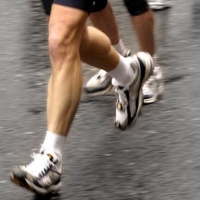The Weeks Leading Up To Surgery
It is important to avoid aspirin and all aspirin-based medicines for at least 10 days prior to surgery. Herbal medications such as St. John's Wort, Gingko Biloba, garlic, etc. should be avoided, as these have blood-thinning properties. Other herbal supplements such as kava and valerian root are known to interact with anesthesia and should also be stopped at least 10 days prior to surgery.
Remember to tell your surgeon all of the medicines and herbal supplements your are taking. Do not forget to check the label of your multivitamin, as many can contain herbal supplements as well. Remember to check all labels of over-the-counter medicines, since certain ones can contain aspirin, too. When in doubt, please check with your pharmacist and/or surgeon.
Since smoking hinders proper lung function, it can increase the possibility of anesthetic complications. Smoking can increase your risk of complications such as deep vein thrombosis (blood clots in the legs). Smoking also reduces circulation to the skin and impedes healing. Smokers who undergo anesthesia are at increased risk for developing cardiopulmonary complications (pulmonary embolism, pneumonia and the collapsing of the tiny air sacs in the lungs) and infection.
Besides the well-known risks to the heart and lungs, smoking stimulates stomach acid production, leading to possible ulcer formation.
Patients are required to stop smoking eight weeks before surgery. Patients must also agree to permanently refrain from smoking after surgery. Ask your primary Care Physician to write you a prescription for a smoking cessation aid, if necessary.
Alcohol causes gastric irritation and can cause liver damage. During periods of rapid weight loss the liver becomes especially vulnerable to toxins such as alcohol. You may find that only a couple of sips of wine can give you unusually quick and strong effects of alcohol intolerance.
- Prev:Liver Transplant in India
- Next:Slim Life Solutions
Related Articles
-
What exactly is More effective To Lose Weight?
If you’re among the several 100s of individuals trying to fin
-
Sources Of Cheap Hcg – Are They Worth It?
If you do an Internet search on Google, Yahoo, or any other search eng
-
The Suitable way to burn immovable abdomen fat plus obtain a six-pack flat stomach quick
If you are like most persons, you would like your figure to look in
-
Planning for Weight Loss
Your weight loss diet helps your program to be successful. The wrong d
-
Best Online Weight Loss Site Offers Sound Advice for Real Body Transformations!
Best Online Weight Loss Site Offers Sound Advice for Real Body Transfo
-
Fat Burning Furnace - Try Out these Methods Losing Weight Youve Never Seen!
How to Lose 26 Pounds in 7 Weeks! Which methods for losing weight have
- DON'T MISS
- The Real Reason Youre Not Losing Weight
- Toe Tap Your Way to Weight Loss
- Interactions of other medications with Forskolin additionally, the effect created by it
- The Truth Behind Acai Berry
- Drop Weight Fast
- Vitamins And Supplements To Take On The Clean Diet
- Fastest Way To Lose Fat And Inches
- Life Changing Weight Loss Camps and Health Farms for Women
- Are You A Possible Candidate For Smartlipo
- The Scottish Diet




